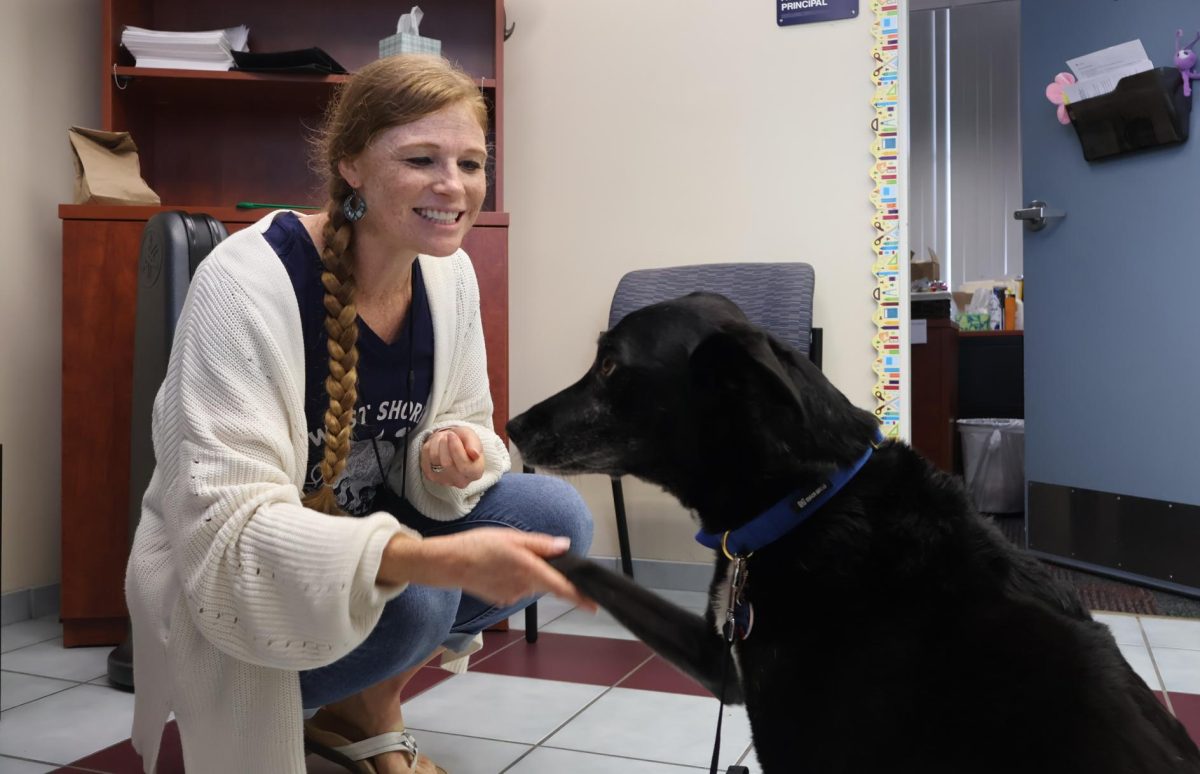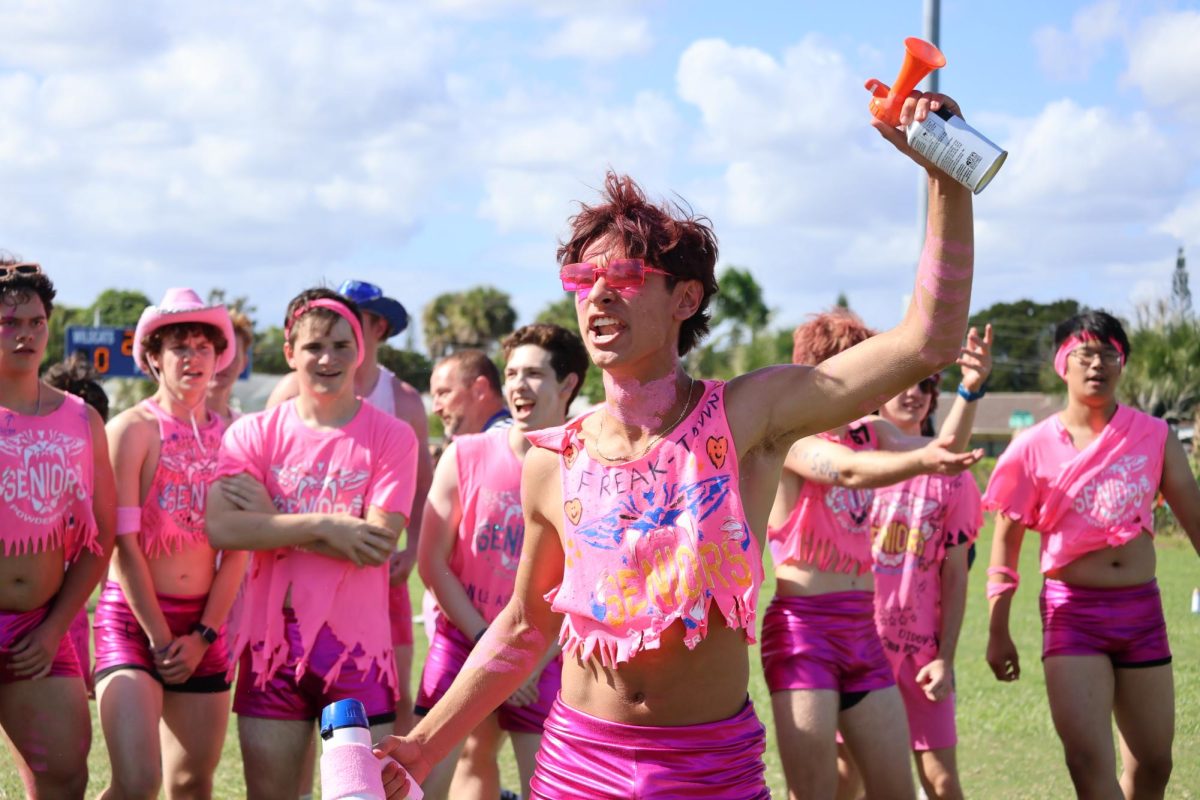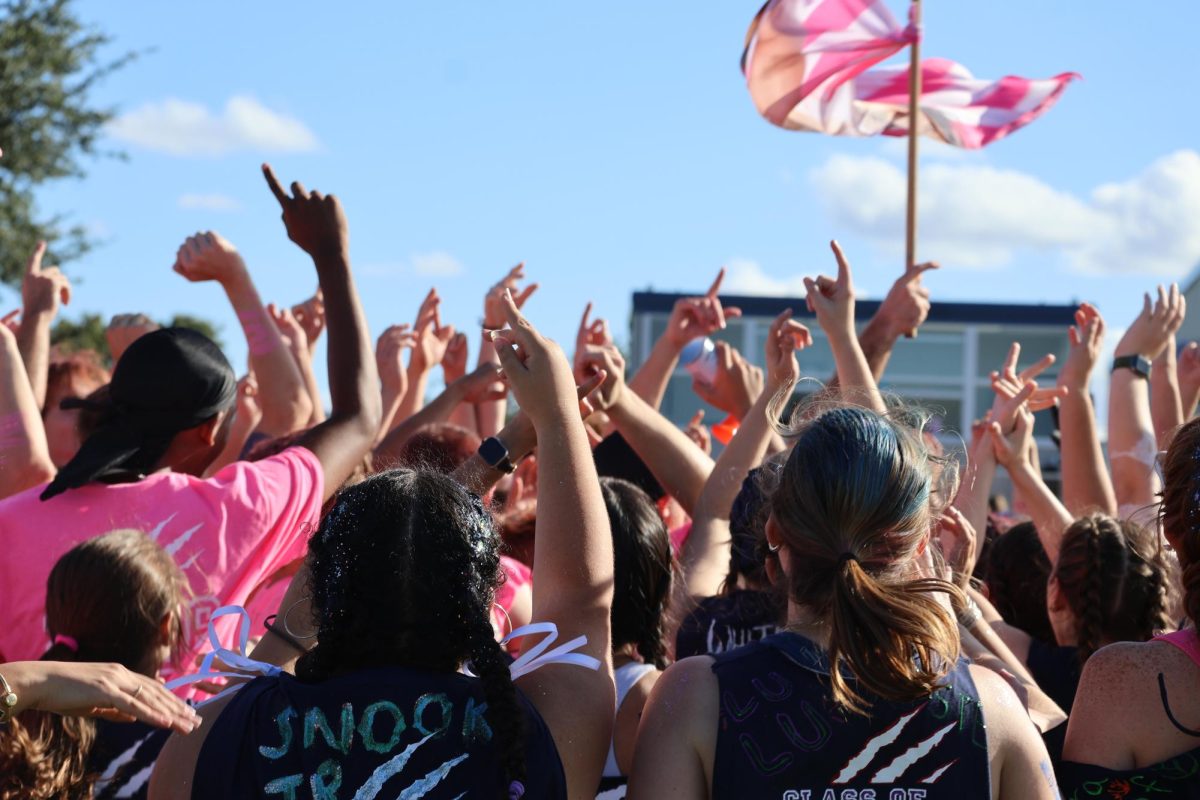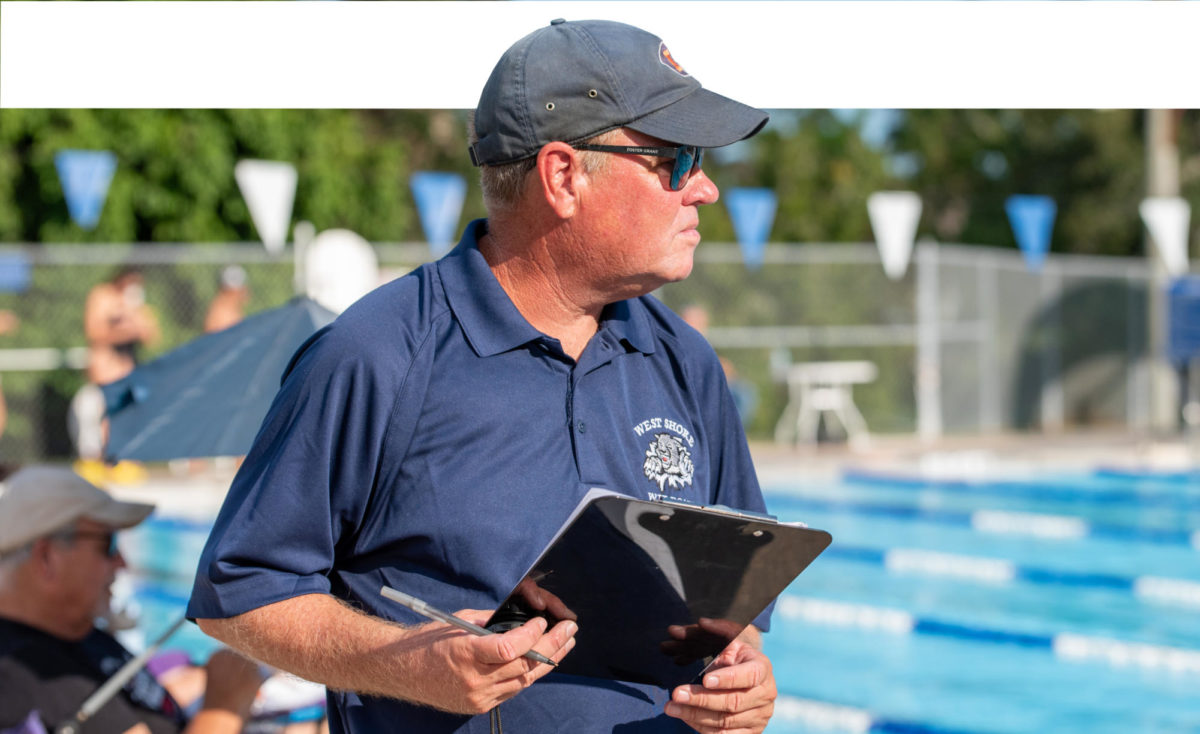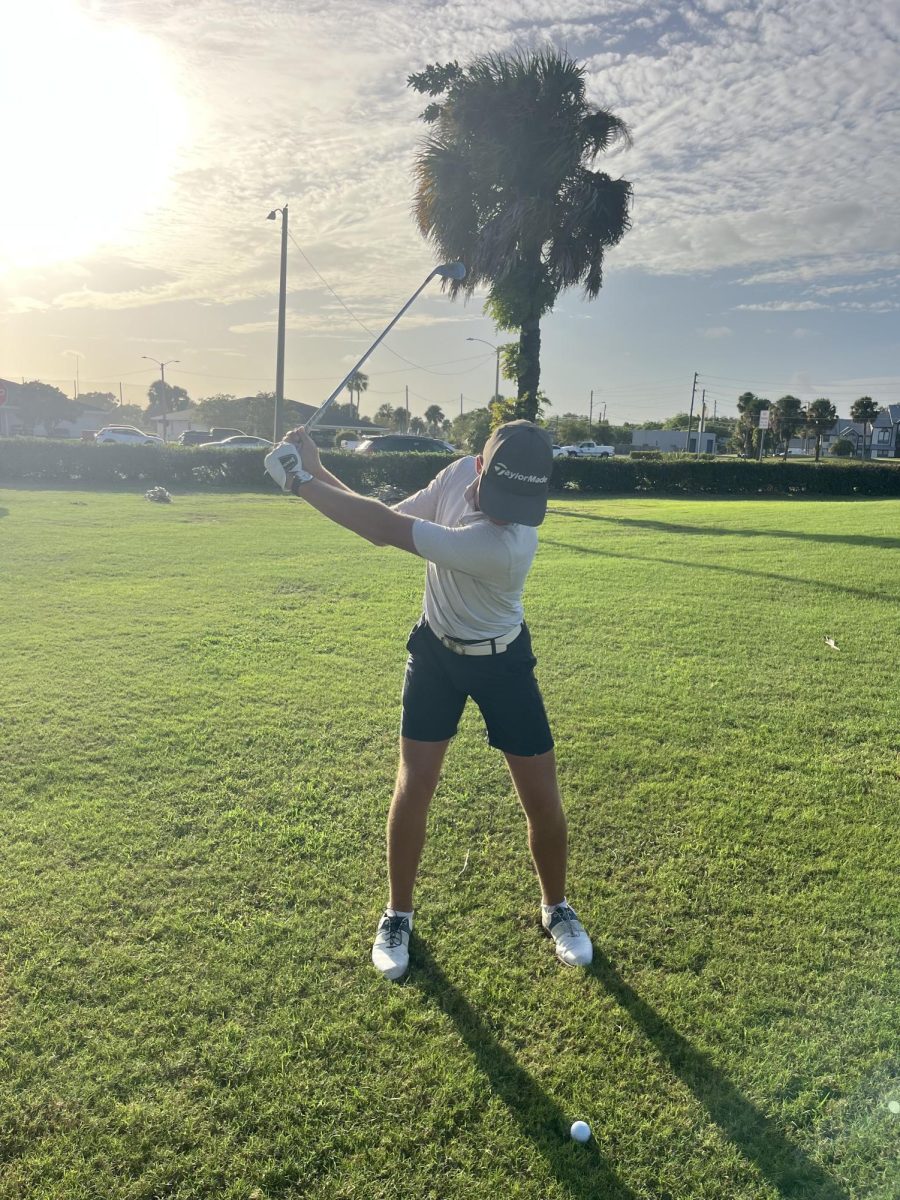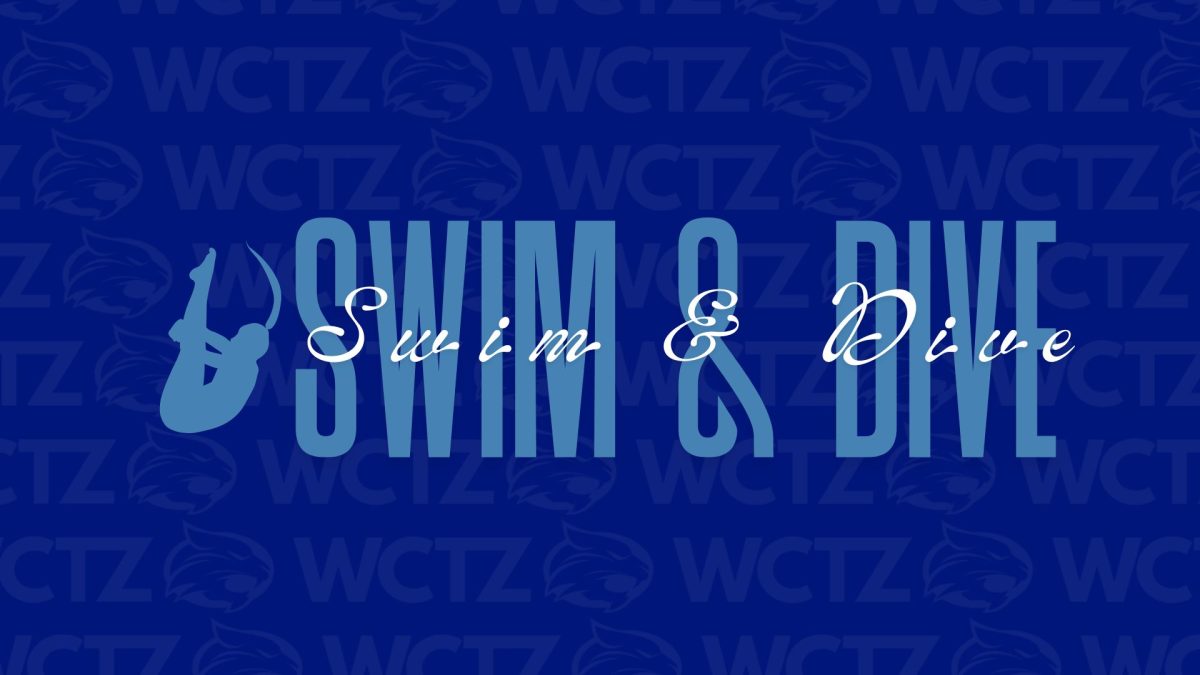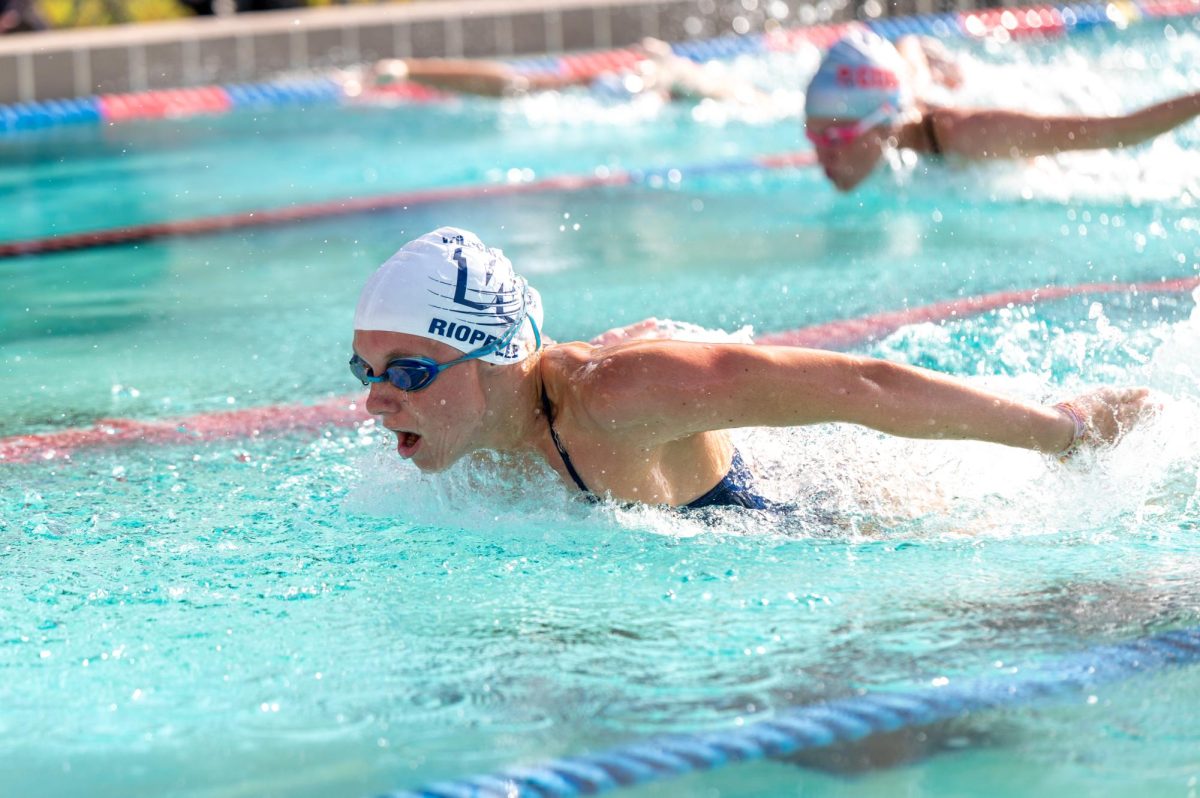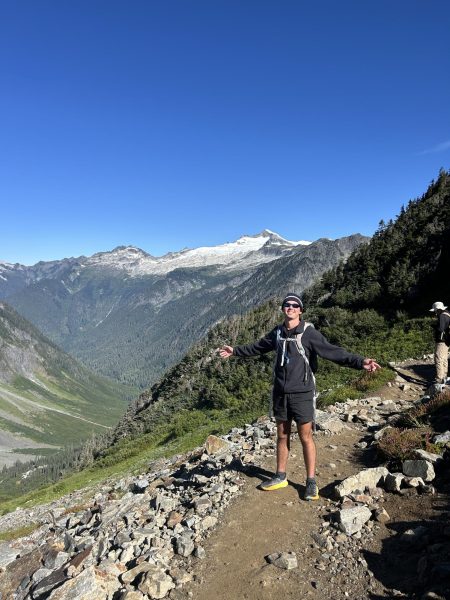Senior Taylor Reid has seen more coaches than new strokes during her time on the school swim team. Reid has been on the team since seventh grade, and has been through five coaches within the program.
“Adjusting to a new coach pretty much every year has been challenging,” Reid said. “Trying to reintroduce yourself and get to know them again and make those connections has been tricky.”
This year marks the third consecutive year of the team beginning the season with a new head coach, but Reid said this hasn’t affected her aspirations.
“It’s really been me against myself in the pool,” Reid said. “I’ve been kind of coaching myself, working with those coaches and giving them what my goals are and then meeting them in the middle of what they need from me.”
New head coach Randall Johnson, who’s been coaching in Florida for 32 years, said his plan for the team is quite simple.
“My goal for the backbone of any high school team, the year-round club swimmer, is to learn how they train, what their motivations are, and learn from them so that by the time the post season rolls around we are on the same page and they will excel in the postseason and years to come,” Johnson said. “I want to teach every swimmer to be legal in every stroke, and for the Wildcat swimmers to know why the fundamentals are the secret to swimming fast. Anybody can put in the work, but to be great, you also have to be fundamentally sound.”
Johnson said he’s building for the future.
“[This is] so that the seventh graders on the team this year grow into the feared stars not only of the West Shore Wildcats but also of the Cape Coast Conference as they mature into juniors and seniors,” he said.
Entering his second year on the team, junior Sean Doran said Johnson already has left an impression.
“I think he’s going to affect my performance, but honestly for the better,” Doran said. “I like the new coach and his new coaching style, and I think he can help me improve a lot more.”
With a new head coach, comes new coaching strategies and techniques, coach Johnson explains what he has to bring to the team.
“I am known as a stroke technician, but I like to call myself an intellectual coach,” Johnson said. “Swimmers need to understand the why’s and how’s we correct strokes so that they can be self-directed and make corrections on their own and are not just puppets.”
Throughout Junior Nicole Riopelle’s swimming career on the team, she has made it to states three times. She reflects on her strategies to remain successful without a head coach she can count on.
“It takes a lot of determination,” Riopelle said. “Making sure I stay on top of myself, staying in the ‘hype’ mindset, because if I’m not excited I get out of it [the mindset], so I have to remind myself why I’m there, and what I’m doing.”
Although there has been a high turnover in coaches within the program, Reid said it hasn’t made as much of an impact on the culture of the team.
“All the coaches that we’ve had have been great, and fortunately there are enough similarities between coaches,” Reid said. “We’ve at least had assistant coaches return so none of the traditions of the team, like with senior night or banquets have been lost.”
With coach Johnson being introduced to the team, the future’s looking bright for the longevity of consistency in coaching.
“I wouldn’t have taken this position if I didn’t plan on staying next year,” Johnson said. “I can’t really say for how long, but I came here to build a program and that can only happen through continuity and as long as the swimmers continue to have fun through the success of hard work, I’ll continue to have fun coaching and I’ll be here.”
Coaching turnover is not just a problem at West Shore, Athletic Director Tony Riopelle said it’s a big problem all across the county, and for many different reasons.
“At least 80 percent of a head coach’s job has nothing to do with what happens on the practice field or the game field,” Riopelle said. “It’s paperwork, it’s scheduling, it’s parent meetings, coming up with rules. I mean, you just keep on going.”
As years have progressed, Riopelle said the amount of paperwork and certifications have been exponentially increasing, with the athletic clearance packet reaching nineteen pages by last year.
“When I started coaching in 1997, I had to get a physical from the athletes,” Riopelle said. “That was it. Then came the EL-3 form, which is one page, then it went to two pages, then it went to four pages. Now coaches have to be CPR certified and athletes have to watch the concussion and heat illness videos. These are all good things. But when you’re not being paid worth a darn, these are not fun things to do.”
With the burden of off field obligations, Riopelle explained the driving factor behind keeping coaches in their programs.
“There’s nothing to hold a coach in place other than their love of the sport and the love of the kids, that’s it,” Riopelle said. “Something has to change, if we’re going to keep coaches.”


![Sophomore Isabelle Gaudry walks through the metal detector, monitored by School Resource Officer Valerie Butler, on Aug. 13. “I think [the students have] been adjusting really well," Butler said. "We've had no issues, no snafus. Everything's been running smoothly, and we've been getting kids to class on time.”](https://westshoreroar.com/wp-content/uploads/2025/08/IMG_9979-1200x800.jpg)



















